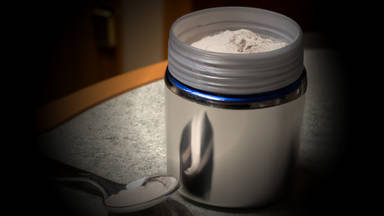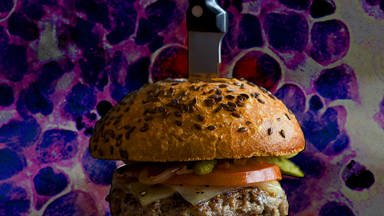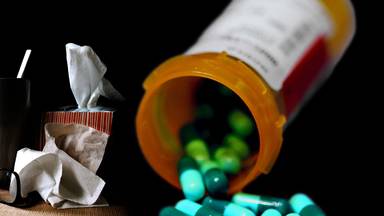
Feeling of constant hunger can be so frustrating. Hunger can affect your life more than it seems. A growling stomach can interrupt you from daily activities. Besides, When you are hungry, your brain raises impulsiveness to make food your number one priority. It will disrupt your brain’s ability to make good long-term decisions.
You are overstressed
Many people have the habit of reaching for food when being stressed. Try to relieve the stress with something other than food such as yuga, going for a walk, and enjoying the fresh air.
When you are physically or emotionally stressed, your hormones (such as cortisol and adrenaline) are released to increase your blood sugar.
High blood sugar can cause you to feel tired and down. Further, chronic high blood sugar contributes to insulin resistance and leptin resistance-which are linked to weight gain and high appetite.
You are deprived of sleep
Sometimes sleeping for 7-9 hours does not meet your body’s need to rest. The quality of your sleep may not be well enough to let your body get to pass its regenerating and healing process.
Sleeping well regulates Ghrelin (an appetite-stimulating hormone). So when you do not get enough sleep during the night, it can lead you to feel hungry while you are actually in need of sleep.
Try to make your bed comfortable and your room as dark as possible during the night to have a better sleep.
Maintaining bad eating habits
Bad eating habits can be an appetite stimulant. Such as eating too much processed foods, too much added sugar, eating on the run, undisciplined meal times, and more.
These bad habits can lead to high blood sugar and insulin resistance as a consequence.
Additionally, When you do not chew food enough, you will get hungry sooner.
One of the effective ways to decrease blood sugar and reduce the frequency of getting hungry is to have an eating discipline. Set 5-8 small meals in a day, starting from 1 hour after you wake up and stop at least 4 hours before you go to bed. This way, you prevent your heavy blood sugar drop.
Consuming many refined carbohydrates or sugary foods
After eating refined carbohydrates, your blood sugar spikes, then when it drops, you will get hungry again. Consuming a lot of refined carbs can raise your blood sugar level. Maintaining a normal range of blood sugar plays an important role in managing appetite and sustaining healthy eating habits.
Watch out for foods made from refined carbs, such as pasta, white flour, white rice. It is better to fill up your stomach with protein and fibers since they do not raise blood sugar, and you will feel full longer.
Having an unhealthy diet
Being hungry can be caused by a lack of fats in your diet. In particular, When you follow no-carb diets, such as keto. When you do not eat carbohydrates, your body switches to burning fat for supplying its needed energy. Hence, in these diets, you should raise your fat intake.
Lack of enough protein in your diet
Proteins have a key role in decreasing appetite. Proteins can make you go longer without food. According to the United States Department of Agriculture(USDA), people should fill:
- 25 percent of their plate with protein,
- 25 percent of their plate with whole grains,
- And 50 percent of their plate with fruits and vegetables.
Low fiber intake in your diet
Fibers are important to decreasing appetite. According to a study, fibers can decrease appetite in a significant amount. Fibers absorb water from your body and the food, transport it to the intestinal tract, and make you stay full longer.
Dehydration
Dehydration also can be an appetite stimulant. Sometimes the brain can’t tell the difference between being thirsty or hungry. Moreover, as studies show drinking a glass of water before meals can help you to feel full on fewer calories by filling up your stomach.
Drinking alcohol too much
Drinking alcohol also has an appetite stimulant effect on the brain by making you dehydrated and as a result, decreasing your blood sugar. Alcohol blocks the liver from making new glucose. Consequently, your blood sugar level falls which makes you feel hungry.
Appetite-inducing medication
Some of the most common medications which increase appetite are antidepressants, corticosteroids, mood stabilizers, and antipsychotics, such as olanzapine, and clozapine, as well anti-seizure drugs.(1,2,3,4)
Also, some diabetes medications such as insulin, thiazolidinediones, and insulin secretagogues are common appetite-inducing medications. (5)
Although there is some evidence that birth control pills also stimulate appetite, this is not supported by strong research.
Exercise
Exercising makes your body burn calories and this will boost your metabolism and as a consequence, you will feel hungry more often.
Medical conditions
In particular, people who have diabetes type 1 may have a higher appetite. Some symptoms of diabetes include:
- Extreme thirst
- Fatigue
- Having a blurry vision
- Peeing more often
- Unreasonable weight loss
- Tingling or pain in your feet or hands
- Late healing cuts and bruises
Additionally, Low blood sugar or Hypoglycemia can cause your blood sugar to drop to very low levels. This problem can be caused by several conditions, such as hepatitis, kidney disorders, adrenal or pituitary glands malfunction, or neuroendocrine tumors in your pancreas (insulinomas).
Some symptoms of Hypoglycemia can include:
- Tingling around the mouth
- Sweating
- Shaking
- Pale skin
- Anxiety or arrhythmic heartbeat
Footnote:
1. https://pubmed.ncbi.nlm.nih.gov/16234878/
2. https://pubmed.ncbi.nlm.nih.gov/24011886/
3. https://www.ncbi.nlm.nih.gov/pmc/articles/PMC3853679/
4. https://pubmed.ncbi.nlm.nih.gov/11735653/
5. https://pubmed.ncbi.nlm.nih.gov/19490828/









